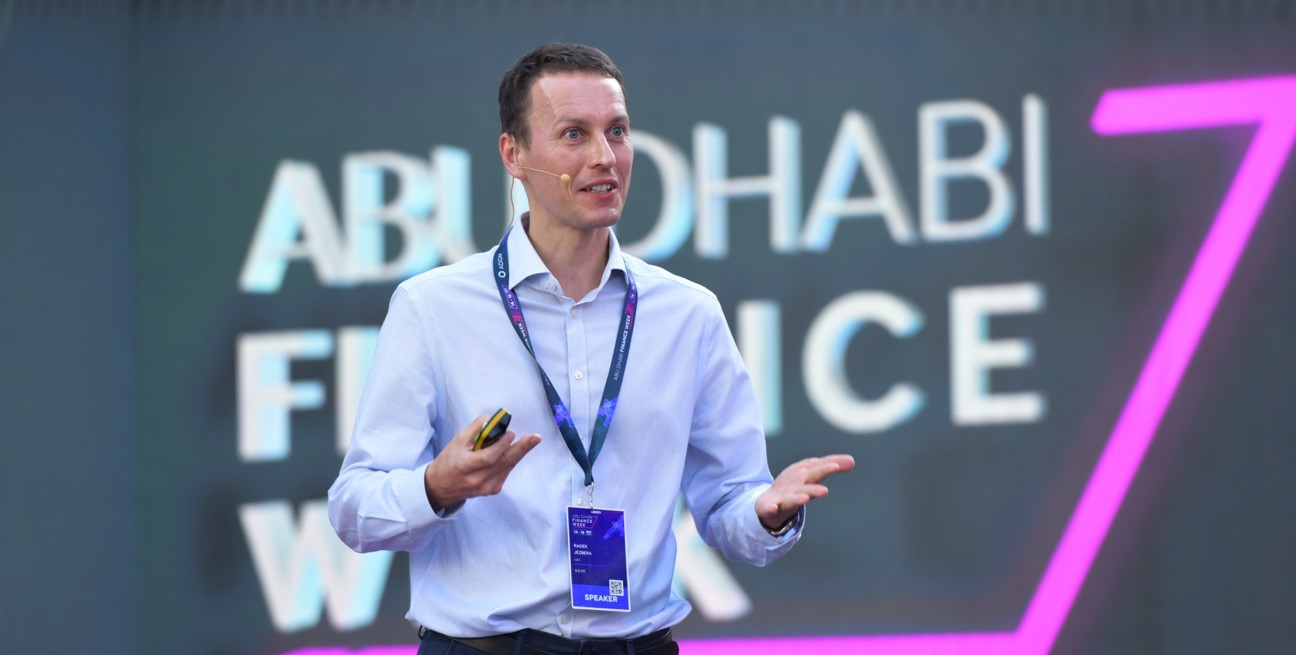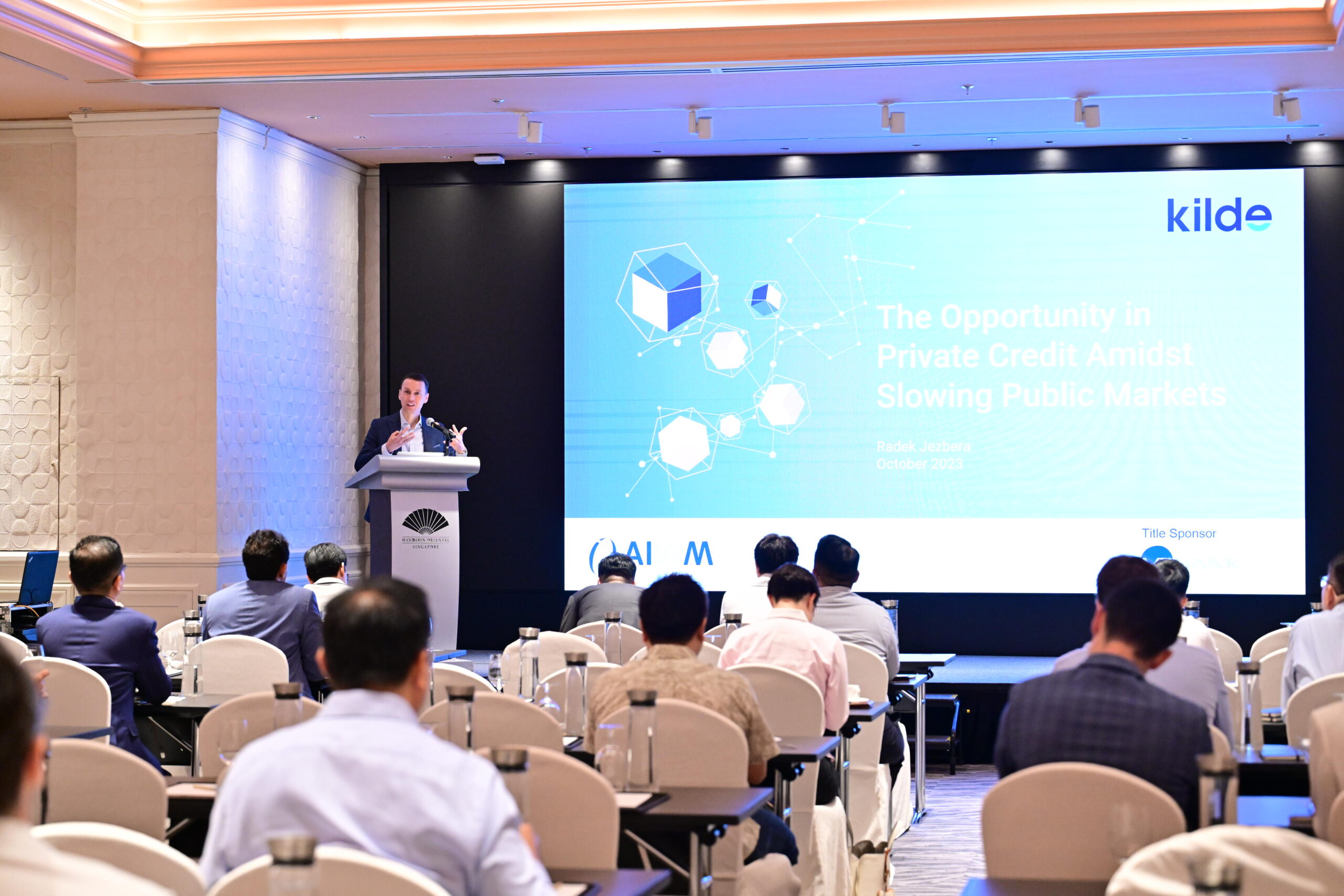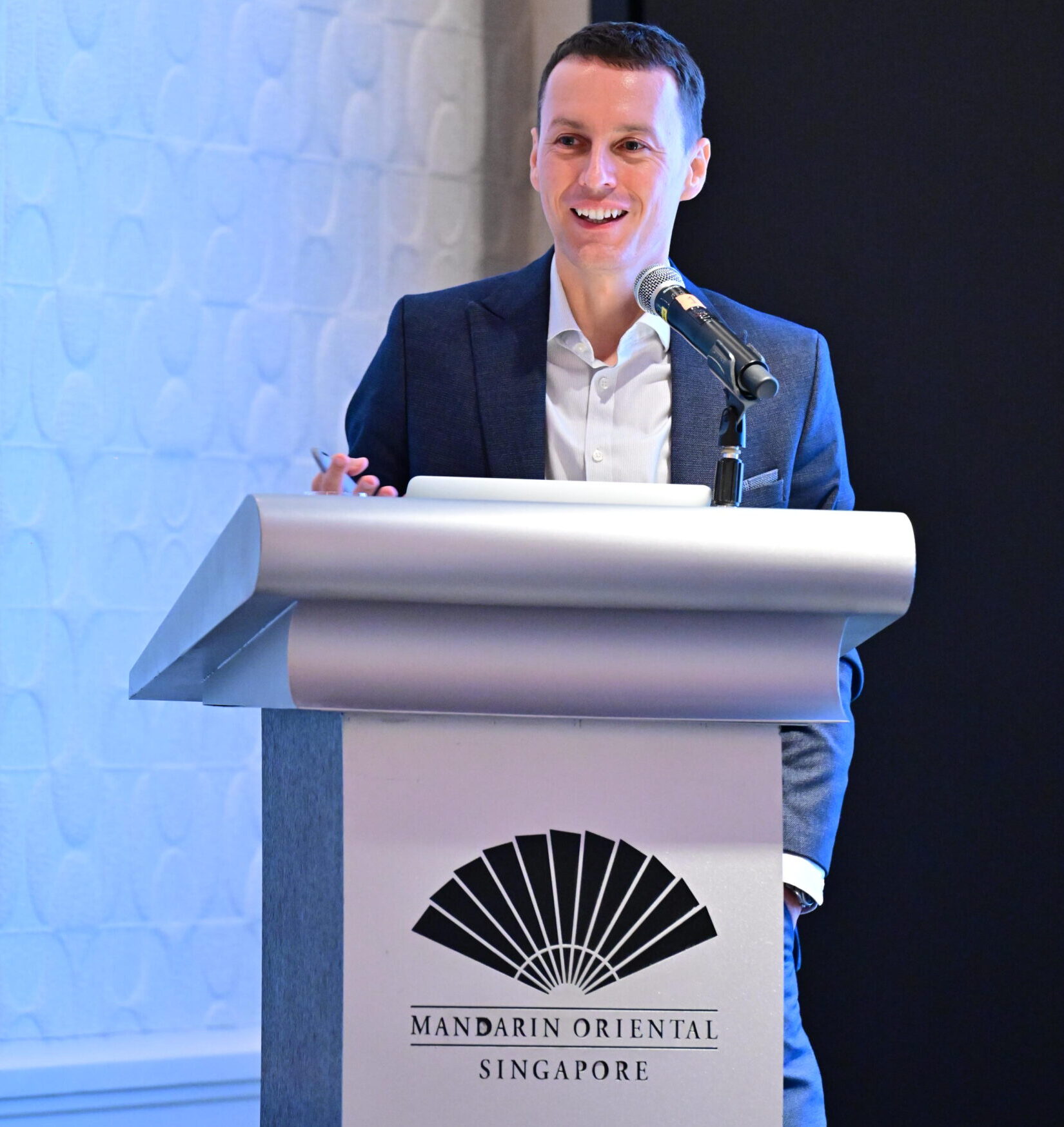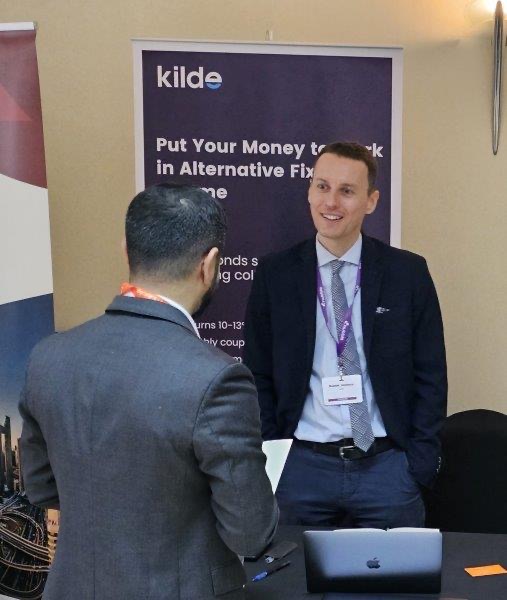Meet Radek from Kilde
Q: Can you briefly introduce yourself and your startup?
A: I’m one of the co-founders of Kilde. Kilde is a complete capital markets platform for private credit, based out of Singapore. We hold a license from the central bank in Singapore, allowing us to deal with securities and financial advisory.
Kilde originated from a vision to create a comprehensive capital markets platform for private credit. With a base in Singapore and a license from the central bank, we set out to address the exclusivity of private credit, typically accessible only to the largest investors. Our goal is to lower the entry barrier, starting with medium-sized investors like family offices and smaller private credit funds, eventually democratizing access for everyone. It’s a challenging journey, especially as we tailor our product across different investor levels, but the mission is to make private credit a more inclusive component of investment portfolios.
Q: How did Kilde come about?
A: We had good access to large companies and a keen understanding of their deal flow in the investment space. Recognizing the potential of certain investments that were attracting wealthy individuals, we questioned why these opportunities weren’t widely available. The realization struck that the scattered nature of offerings and the regulated nature of investment activities were barriers. When we started four years ago, many players were not serious and lacked proper checks. We aimed to build a company that could handle this properly, envisioning it to grow into a billion-dollar asset under management investment firm. The journey proved more challenging than anticipated, with constant issues evolving as the company grew. Yet, it remains an exciting and rewarding journey for us.
Why Joined Startupbootcamp?
Q: What motivated you to join Startupbootcamp?
A: Because despite our seasoned professional backgrounds, with around 20 years of work experience for myself and 15 for Oleg, we hadn’t ventured into a product business. Our previous business was service-oriented, successful in consultancy but different from running a product-centric company. We recognized the need for education and sought to properly integrate into the startup community, adopting the mindset required to manage a rapidly growing product-based company.
Startupbootcamp Application Process
Q: Can you describe the application process you went through for Startupbootcamp?
A: First, we applied, and even before that decision, we created a list of potential acceleration programs. While YC was at the top, we considered the logistics and focus areas—given our Asian business context. Some programs aligned better with our region, like those based in Singapore or Hong Kong. Unfortunately, not all programs on our list were open that specific year. Startupbootcamp, for example, was on our shortlist, but they didn’t have a program in Singapore that year, so we applied in Dubai. After applying, we were invited for an initial discussion, including a presentation. This led to being shortlisted for a presentation in front of the selection committee.
Q: What factors do you believe set your company apart and contributed to acceptance into the program?
A: I think, firstly, our seriousness and having a strong team played a significant role. We already had traction, a challenging-to-develop product, and the added advantage of holding a license from the central bank, a feat not easily achieved for a startup. They likely saw that we had put in substantial work. Additionally, we had a tech product in place, allowing us to demonstrate tangible progress. Having secured our first paying customers also positioned us a bit further ahead compared to the average company joining the accelerator.
Inside Startupbootcamp Program
Q: What steps followed after being shortlisted for Startupbootcamp?
A: After the presentation, we received conditional acceptance. This required flexibility in accepting the accelerator’s terms and conditions. Negotiations ensued, addressing various aspects of the agreement. Once terms were agreed upon, we formalized our acceptance. Subsequently, part of our team traveled to Dubai to actively participate in the program.
Q: What does the Startupbootcamp program entail, and how is it structured?
A: The program is a blend of mentorship and lectures, covering various aspects of running a startup, financial management, and fundraising. You receive guidance on preparing for fundraising, including opportunities to pitch to different investors, starting from angels to later-stage VC funds. One notable difference, especially if you’re outside the US market, is the scarcity of early-stage funding elsewhere. The ecosystem might not be as well-developed, making it challenging to secure significant investments, even with traction. The Middle East, for example, primarily had series A and later-stage funds.
Q: Did you have access to mentors during the program?
A: We had access to mentors, and while my personal experience was not negative, it’s crucial to be discerning about the advice you take. In regions like the Middle East and somewhat in Asia, some mentors may come from a corporate background, attempting to apply corporate expertise to startups. This approach may not always align with the startup mindset. If seeking genuine startup advice, I recommend turning to those who have experience with multiple startups, and serious entrepreneurs who understand the uniqueness of each situation. Such mentors provide more relevant information, understanding that startup scenarios differ. It’s also important to be cautious about advice from VCs and carefully assess its applicability to your specific context.
Q: Did you get any funding from the Startupbootcamp program?
A: While there’s some flexibility in negotiating equity, the amount invested is typically fixed. Programs often operate within a budget allocated by their operations (OPs) and might not have additional cash to offer. Negotiating equity terms is more feasible, allowing some room for customization.
Achieving Milestones during the Program
Q: Can you share a significant milestone achieved during the Startupbootcamp program?
A: We made notable progress in refining our pitch and narrative. The program provided ample opportunities to explain our product to various audiences, allowing us to continuously improve. While we didn’t perfect it during the program, the significant improvement was valuable. Additionally, we gained insights into the fundraising market, honing our fundraising skills. One strategic decision that emerged was to stay in the UAE and establish a presence after the program, contributing to our overall growth.
Current Status of Kilde
Q: What’s the current status of Kilde and what are your upcoming milestones?
A: While we recognize that building an investment business is a long-term endeavor, we’ve made significant strides. Currently, we have over $40 million invested across different investments, and our goal is to double this figure each year. One particularly exciting development is the growth of our individual investor channel, which is expanding at a remarkable rate of 40% month-to-month.
Looking ahead, we plan to reach between $80 to $100 million in outstanding investments next year, with plans to launch a second version of our investment platform featuring a more user-friendly interface and additional features. An ambitious step for 2024 involves expanding our investor base to include non-qualified investors. We’re in this for the long run, with a vision that spans the next decade.
Key Advice for Startupbootcamp Applicants
Q: Any final tips for founders considering applying to a Startupbootcamp?
A: Clearly define what you want to achieve from the program and focus on that aspect, ignoring the rest. For early-stage startups, the crucial focus should be on validating the problem you are solving. Use the program as a platform to achieve that validation. If you find that the problem isn’t validated, be prepared to pivot or adjust. Often, you might not have figured out your product-market fit during the Startupbootcamp, and it might be in a different direction than you initially thought. Keep an open mind, stay informed, and use the program to assess if what you’re doing aligns with the right direction.




